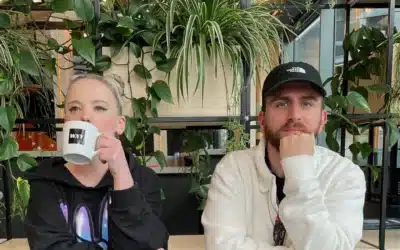Martha Moore, account manager at Manifest, challenges the notion that marketers need to put themselves in one creative box to succeed in a noisy market.
If you have a job that sits somewhere within the broad spectrum of marcomms, you’ve probably noticed an increased amount of chatter in your timelines and on Zoom calls about digital PR.
It’s a tale as old as time in an industry that evolves constantly: a slightly new way of doing something is discovered. Everyone rushes to ‘thinkpiece’ it. Some people cooler than you set up a startup specialising in the new thing. People with headshots against exposed brick walls (looking at you, Manifest website) dissect what the new thing could mean for the sector.
People attracted to creative jobs are naturally curious of mind and (mostly) love talking, so as a cycle, it’s to be expected. But the digital PR discourse has been particularly interesting for us at Manifest because of the way we like to do things.
You may have heard us talk about our unique approach to integration. Full disclosure, we do talk about it a lot – but that’s because we’re a collective of people obsessed with the betterment of our industry, for the betterment of the creatives that populate it.
Integration, typically, delivers separate services hand-in-hand, with one focal channel driving the idea or creative behind it. In these scenarios, one channel shines with a bespoke idea that perfectly fits its purpose. But how does that concept then translate across all other channels? Often, it ends up feeling like a forced fit – and what does that mean for the ‘360’ brand experience for consumers?
At worst, that experience feels disjointed – and at best, you’re left with a bunch of teams fighting to make a piece of creative work for their specialist areas.
Unification – which is what we call our model – fronts all creative with a strategy and platform, ideating cross-channel from the off so that one central idea can work seamlessly across paid, earned, social and owned.
Creativity and problem solving – providing solutions to real human issues through creative campaigns – should be channel-agnostic, and not limited by a particular discipline. Approaching campaigns in this way won’t just make for an enhanced execution, it encourages a strategic slant at every touchpoint.
This, of course, isn’t to say that other agencies aren’t strategic in their thinking – any creative worth their salt understands the importance of setting delivery within a much wider context. But giving strategy the gravitas it deserves, and then rolling that strategy out in a fully unified way, can help advance the incredible talent across every single sub-sector in our industry.












